Getting Acquainted with Wendell Berry
I've only read a few chapters of The Unsettling of America, and I've already got some strong reactions...
Welcome to the Quarantine Creatives newsletter, a companion to my podcast of the same name, which explores creativity, art, and big ideas as we continue to live through this pandemic.
If you like what you’re reading, you can subscribe for free to have this newsletter delivered to your inbox on Wednesdays and Sundays:
I recently posed a question to Nick Offerman: as somebody who has never read Wendell Berry, where should I begin?
Nick profiled the Kentucky farmer, author, and poet in his book Gumption, he provided narration to Berry’s audio books, and he co-produced the film Look and See: Wendell Berry’s Kentucky, so I knew he would be the right person to answer this question.
Nick responded in his Donkey Thoughts newsletter with a video post where he detailed some of his favorite Berry works, dividing them up into essays, fiction, and poetry and offering me several good titles in each category. I took assiduous notes, and last week, I visited my local library to borrow a copy of The Unsettling of America, which seemed to me a logical place to start my journey based on Nick’s advice.
I am only a few chapters in to the book and will likely have a lot more to say on it in future newsletters, but I wanted to look at a concept today which Berry introduces in the second chapter that made me think: specialization.
At first, specialization seems like a good thing. People can practice one particular skill and grow to have some expertise in that field. Others can come to that expert when they need advice. However, Berry sees specialization as a big problem:
“The disease of the modern character is specialization. Looked at from the standpoint of the social system, the aim of specialization may seem desirable enough. The aim is to see that the responsibilities of government, law, medicine, engineering, agriculture, education, etc., are given into the hands of the most skilled, best prepared people. The difficulties do not appear until we look at specialization from the opposite standpoint- that of individual persons. We then begin to see the grotesquery -indeed, the impossibility- of an idea of community wholeness that divorces itself from any idea of personal wholeness.”
Berry doesn’t come right out and say it (at least not at this point in my reading), but it would seem that the antidote to a modern specialist is a generalist, a “Jack of All Trades” if you will.
There’s a photograph on my wall of my grandmother as a young girl growing up on a farm in Michigan. She was born just as the Great Depression was beginning and I glance at that photo often and consider how her childhood differed from my own. On the farm, there was no electricity for most of her childhood and the bathroom was an outhouse. Bathing was a production, with a large basin brought into the kitchen, water heated on the stove, and each family member taking a turn getting clean. This was an activity done a few times a month, certainly not daily. My grandmother lived more similarly to the way humans had for hundreds of years prior than to the way that I grew up, with air conditioning, an ice maker in our refrigerator, and the Nintendo Entertainment System.
My great-grandfather (my grandmother’s dad) ran the farm, and he had to understand crop and soil health, animal husbandry, butchery, safe food storage, carpentry, plumbing, auto and tractor repair, and a host of other trades. There was no YouTube or other reference when he would get stuck- his only option was to ask a neighbor for help, find a book or magazine on the subject, or rely on his own intuition for problem solving. He was a “farmer” by trade, but he was really a generalist that could keep the farm going relatively profitably while also tending to the many other needs of his household.
In three generations, all of that knowledge of how to provide for oneself and the larger community was wiped out in my family. Like a lot of my generation, I am considered a “knowledge worker,” which means I will stare at a computer screen for most of my career and produce little with my own two hands.
I wish that my education had focused more on practical skills. Instead, I was on a college track, which meant academically focused middle and high school years. I had one semester of shop class and one semester of home economics in middle school, learning to bend sheet metal into a candle holder and bake chocolate chip cookies. I did not learn in that brief time how to actually feed myself nourishing food, or how to craft implements that would aid in the creation of those meals.
Math class could have taught how to balance a budget, apply for a loan, or assess the value of a credit card. Instead, we learned archaic formulas without real-world applications. Science could have taught us the physics that make an internal combustion engine operate or the effects of manure versus synthetic chemicals on soil health. Instead, we studied slides of dead insects through microscopes, never understanding why and only learning enough to pass the next test.
It has taken me nearly two decades of hard work to recover from this lack of an education. I have spent a lot of time reading, talking to folks smarter than me, and sitting with my own thoughts.
A lot of that re-education has centered on learning practical skills: woodworking so that I can build some basic furniture, cooking to feed my family, making maple syrup from the trees in my backyard, and learning how the engine of my RV works so that I can do basic repairs and maintenance.
As I approach 40 years old, I know only a fraction of what my great-grandfather did at 20 and am very dependent on other people. To quote from Berry on how we have outsourced most of our existence to specialists:
“Thus, the average-one is tempted to say, the ideal-American citizen now consigns the problem of food production to agriculturists and ‘agribusinessmen,’ the problems of death to doctors and sanitation experts, the problems of education to school teachers and educators, the problems of conservation to conservationists, and so on. This supposedly fortunate citizen is therefore left with only two concerns: making money and entertaining himself. He earns money, typically, as a specialist, working an eight hour day at a job for the quality or consequences of which somebody else-or, perhaps more typically, nobody else- will be responsible. And not surprisingly, since he can do so little else for himself, he is even unable to entertain himself, for there exists an enormous industry of exorbitantly expensive specialists whose purpose is to entertain him.”
And perhaps more alarming, here’s Berry’s take on where that specialization leads us:
“The beneficiary of this regime of specialists ought to be the happiest of mortals- or so we are expected to believe. All of his vital concerns are in the hands of certified experts. He is a certified expert himself and as such he earns more money in a year than all his great-grandparents put together. Between stints at his job he has nothing to do but mow his lawn with a sit-down lawn mower, or watch other certified experts on television…
The fact is, however, that this is probably the most unhappy average citizen in the history of the world. He has not the power to provide himself with anything but money, and his money is inflating like a balloon and drifting away, subject to historical circumstances and the power of other people. From morning to night he does not touch anything that he has produced himself, in which he can take pride. For all his leisure and recreation, he feels bad, he looks bad, he is overweight, his health is poor. His air, water, and food are all known to contain poisons... He does not know what he would do if he lost his job, if the economy failed, if the utility companies failed, if the police went on strike, if the truckers went on strike, if his wife left him, if his children ran away, if he should be found to be incurably ill.”
When we can only see the world through our specialized lenses, we miss out on the big picture.
Every week, I spend some time at Clark Farm in Carlisle, MA, which grows a diverse set of fruits and vegetables, but it also sells eggs and raises sheep, chickens, and pigs for meat. I am a CSA member here, meaning I buy “stock” in the farm each season and get to enjoy the harvest, whether it’s bountiful and abundant or scarce and meager. This is the first year that they’ve offered a “full season share,” which gives me fresh produce beginning in April and running through early January, quite the feat in Massachusetts.
On a recent Saturday at the farm, I spent some time picking cherry tomatoes, which produced abundantly this year despite a prolonged drought. The fruit were numerous on the vine and I barely had to walk more than a few feet into the row before easily filling my allotted quart of tomatoes.
On the way home from the farm, I stopped into Whole Foods Market for some other staples which I could not get from local farms (primarily flours, condiments, and some packaged foods). As I walked through the produce aisle, I couldn’t believe my eyes. There were cherry tomatoes very similar to the ones I had picked about five miles away at the farm, except these were in a plastic container and had either been grown in Canada or Mexico!
No doubt, a specialist in retail merchandising made a deal with a large-scale agricultural company that would allow for cheap tomatoes to be sold at a decent margin in the store, even with the added cost of shipping these tomatoes across international borders.
A generalist would immediately see the madness in this. There were thousands of potential suppliers within a 100 mile radius of this grocer that could have provided tomatoes at the peak of freshness. There were even more if that range were expanded to 500 miles. Perhaps on an Excel spreadsheet where tomatoes are but one line item in a department, the importing of these goods makes sense.
But, there are costs beyond money that are completely unaccounted for in the equation of these tomatoes. What are the labor costs and conditions of the farmer, harvester, or packager of these fruit? What quantity of fossil fuels did it take to grow at the scale needed to provide to a national grocer, and how much more carbon did it take to transport these around the country? The plastic packaging is helpful to keep the tomatoes from being dented on their long journey, but if they traveled less, could they have used less packaging?
The consumer is equally guilty in this equation. Whole Foods wouldn’t stock these highly perishable tomatoes if they weren’t selling them. There are families in my neighborhood that are buying them, not bothering to read the label to see the source, or not invested enough in seeking out alternatives. They have become specialized consumers, only thinking of the financial impact on their grocery bill or the convenience of shopping at one store.
To a specialist, every decision is made in isolation, and the only equation that matters is the simple one right in front of them. For a generalist, every equation is connected. There is no simple math- everything is long division.
This mentality can be extrapolated beyond consumerism. I have been very vocal about my resistance to a large scale return to office, and perhaps it’s because I take a generalist view of the problem, where as many CEOs are viewing it only as a specialist.
The argument in favor of returning to the office is that proximity promotes collaboration, culture, and mentorship. In the abstract, this all makes sense. When charged with running a business, the specialist lens can see in-person work as the only solution to this problem.
For me, the most heartbreaking part of return to office is going right back to a life of commuting, which means more cars on the road when we desperately need to cut our dependence on fossil fuels. California has been in a heat wave with rolling blackouts. Jackson, Mississippi was flooded and now has no drinking water. I-95 was flooded in parts of the Northeast last week. Climate change is here and is the biggest threat facing our planet.
Meanwhile, the last two and a half years have taught us that a lot of the work that used to be done in offices no longer needs to be. If we were looking at life as a generalist, we would see that work that can be done remotely probably should be done remotely for the greater good. If there’s no good reason for cars to be on the road, let’s do what we can to minimize them.
It may take some extra effort as a leader in a company to ensure all employees feel valued and that the spirit of a place is maintained, but when looking at the big picture, it’s hard to argue that corporate culture is worth ecological destruction.
Perhaps some of my frustration with return to office is also because many people don’t have a great alternative to driving, including myself. I am fortunate to live close to an MBTA commuter rail station with service into Boston, but the way that tickets are priced, the infrequency of the service, and the unreliability of the trains due to years of deferred maintenance makes driving into the city cost the same as taking public transit.
Boston’s commuter rail system is divided into 11 zones, with the fare increasing the further away from Boston that your trip originates. A one-way fare on the commuter rail can range anywhere from $2.40 to $13.25. A commuter rail ticket also does not offer a free transfer to the subway or a bus, even though most other modes of transit do allow for transfers, making the full cost of commuting door to door even higher. Between station parking, train fare, and subway fare, a daily roundtrip to Boston costs me more than $30, whereas parking in a lot near my office is $23.
I can begrudgingly absorb these commuting costs, but what of the service worker earning $15 an hour? Should 1/4 of their daily salary be devoted to commuting costs? What does that leave for housing, food, and clothing?
We wonder why there’s incessant traffic in our region, but don’t consider a holistic approach to transit, which should incentivize trains, bikes, or walking and disincentivize driving. (I recently wrote about how a vacation at Disney World is transit agnostic and I wish more cities would adopt that approach). Shouldn’t the goal of public transportation be to increase ridership, thus decreasing traffic and pollution?
Through that lens, a single affordable fare for all forms of transit, with frequent service and convenient stations makes much more sense. It may be harder to justify as a line-item on a spreadsheet, but it allows for the efficient movement of people across a region, and it cuts down on car traffic, which has a net benefit to all commuters and anybody that breathes air (spoiler: all of us, plus all the other plants and animals around us).
The problem with “specialization” comes when the specialists only recognize how something is supposed to work in theory but have no practical knowledge of it. In other words, the people that make the product don’t consume their product.
Here in Boston, we have been dealing with a month-long shutdown of one of our four major subway lines to make emergency repairs. We are fortunate that the Mayor of Boston, Michelle Wu, spent some time during the shutdown experiencing several alternative commutes, including shuttle buses, the commuter rail, and biking.
I heard the Mayor give radio interviews during this time where she shared some very specific feedback about wayfinding signage at specific exit points of stations and other granular observations. Having a leader experience an issue at a retail level like that is crucial to implementing changes and seeing the full picture. It’s not an understanding that can be gained from city hall studying charts or graphs.
Perhaps it also explains why Undercover Boss was such a compelling show to watch. It’s easy to dictate company policy from the corner office, but gaining experience on the ground from the perspective of front line workers and customers uncovers the true points of friction in a business. Without that knowledge, there will always be a disconnect between how things are supposed to work and how they function in reality.
Specialization inherently leads to things like consolidation and outsourcing. This works well enough when the system is functioning correctly. But the last two years should have been a wake up call to all of us that specialization is incredibly vulnerable. Lumber prices are still sky high, new and used cars are still scarce, our electrical grid and water systems continue to fail us, and we import from other countries that which can grow in our own backyards.
This tweet from Matt Grocoff neatly summarizes an approach to fixing some of these problems:


While my great-grandfather would have had access to manufactured goods through the Sears-Roebuck catalog and some exotic or processed foods through the local grocery store in his small Michigan town, most of his life was based on doing business with locals.
It wasn’t that long ago that most of our cities and towns functioned this way. Imagine the bank panic that sets in during It’s a Wonderful Life. The locals go to George Bailey for guidance, and he puts up his own honeymoon fund to hold over his neighbors. If that happened today, could your community depend on a large national or international bank to tide you over?
I will close with the sentiment that began this essay: these reflections are after only a few chapters of reading Wendell Berry, and I expect that I will have more to say as I continue reading and thinking. I wish I had listened to Nick Offerman sooner, who has been singing Berry’s praises for years, but I am glad the journey has started.
I encourage you all to borrow a copy of The Unsettling of America (or listen to the audiobook, which is narrated by Nick Offerman), or explore other readings that will make you reconsider the systems we have built. There’s no way to fully divorce from all modern consumerism and specialism, but the more that you get your hands dirty in the kitchen, the garden, the wood shop, or under the hood, the more you might start thinking like a generalist.
Have you read Berry and been inspired? How do you view the role of specialists? What responsibility do we have as producers and consumers to think about the greater good? I’d love to hear from you- let me know what you’re thinking!
Related Reading
If you’d like to catch up on past episodes of the Quarantine Creatives podcast, they can be found on Apple Podcasts, Spotify, or wherever you listen.
Please consider sharing this with a friend that you think might enjoy it, or better yet, share it on social media so you can tell hundreds of friends!
If you’ve missed past issues of this newsletter, they are available to read here.
Stay Safe!
Heath


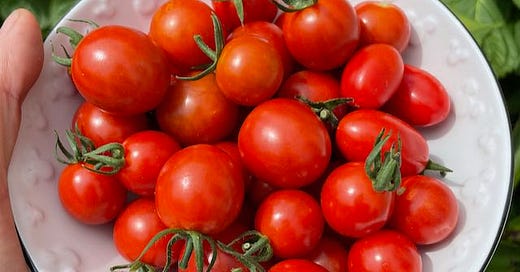


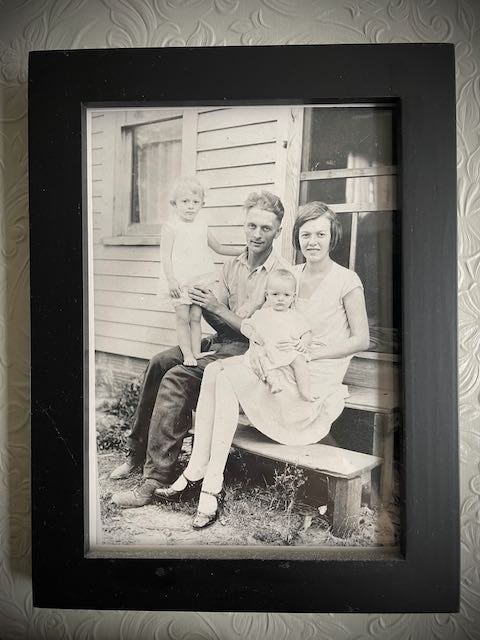
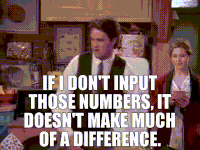
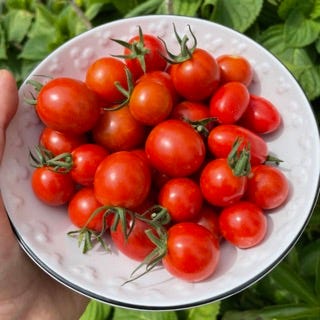
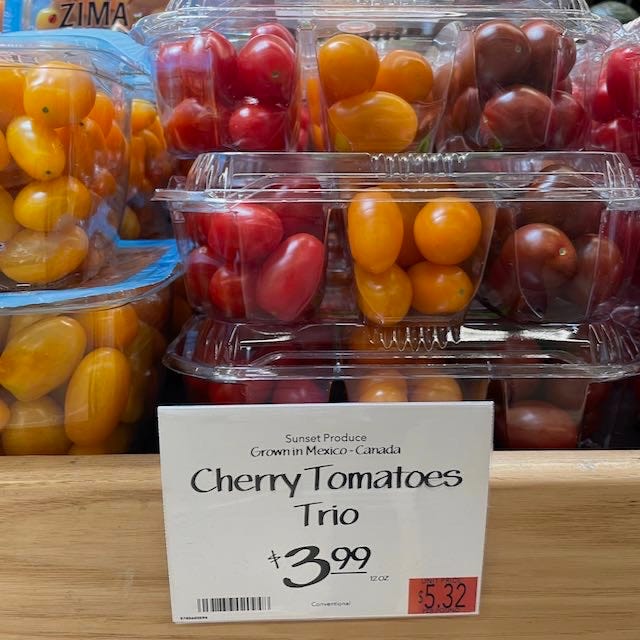
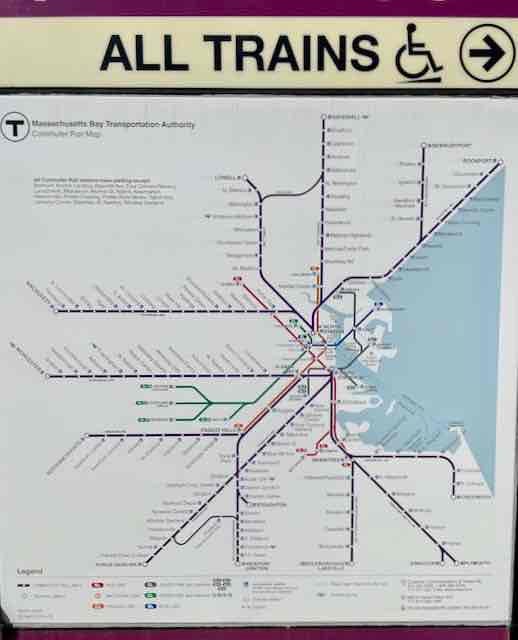


Heath, thank you so much for informing your readers about this Wendell Berry book. What you've quoted from him in this article follows a line of thinking that I've had for years now.
Also, this thing you said here literally sums up the basis of an essay I already planned to write over the next several months:
"To a specialist, every decision is made in isolation, and the only equation that matters is the simple one right in front of them. For a generalist, every equation is connected. There is no simple math- everything is long division."
You pretty much just spoke the words from my brain here. Yeah, that’s pretty much what I was going to write, and I’ve never even heard of Wendell Berry before now.
My entire life (I’m 35 now) I have striven to be a generalist, simply to be contrary to everyone in my life insisting that I pigeonhole myself and become a "proper" specialist. Eventually I succumbed and worked as an SEO specialist for over a decade, some in office work but much of it freelance. But, during the pandemic, when I assumed my SEO services would be in higher demand than ever, everyone asked what my niche was. These days it seems unless you become hyper focused and build a clique around you on social media and post daily TikToks, you're irrelevant. All of a sudden I was irrelevant because I refused to walk the party line of specialism as identity.
I was fortunate in that I met a fellow creative around that time. We hit it off, and today we are now married. So, outside of various business obligations, for the first time in my life I can work on my personal website and build up a proper newsletter (thanks Substack!) that doesn’t have to revolve around continuing my SEO career (which never paid enough to make ends meet, sadly).
What really makes me sad is that I wonder how many other people fall through the cracks on a daily basis, simply because they are better at being generalists. How many college grads became specialists that are no longer relevant in 2022? I shudder thinking about it... but, yeah, the sooner people realize that being a generalist is actually a good thing, the better.
It's a crime that your writing on Substack gets so few engagements, at least for the time being; I know what that's like, but I always made sales when someone gave me the chance to do SEO for them. Views don’t matter; it’s the connections that you make from your content that matters most!
Nowadays, I just write whatever I want. This coming year, I'm omitting to daily posts about whatever I want as long as it's something that could be useful to someone else. Sure, I write a lot of Pokemon articles these days, but they are a major driver of traffic to my site; they are not my niche, but rather me writing about my hobby. I only will write them as long as they bring me joy knowing people are looking for these types of articles and are enjoying them. As soon as they stop getting views, I’ll move on to something else that I feel will be useful to people.
This is why being a generalist is awesome; you never have to over-commit to something that’s sucking every positive aspect of your soul from you.
I'm thrilled to finally find a blog online that is actually engaging, that's not over-politicized, and that's clearly humanist in nature. This very comment is becoming an essay, so I will close briefly with just a thank you so much for writing these things, and you can expect to read many more essay length comments from me! - Amelia
P.S. I am ordering Unsettling of America right now from Abebooks!